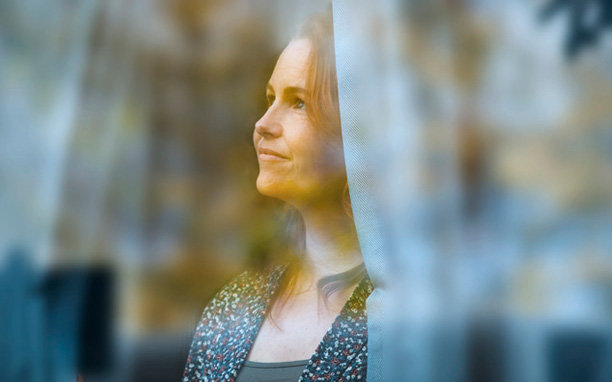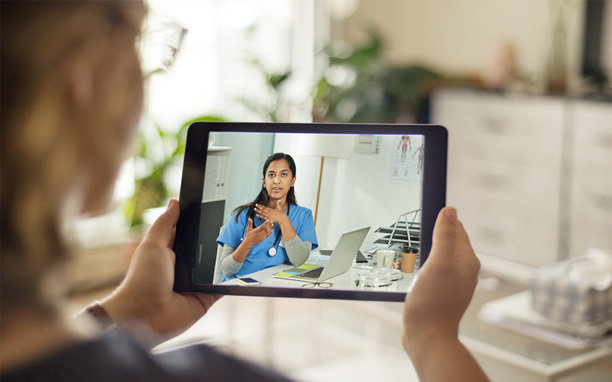Bupa UK has today unveiled the second phase of its ‘Is It Normal?’ brand campaign, which focuses on mental health after months of distress brought about by the COVID-19 pandemic. The campaign asks ‘what is normal now?’, aiming to normalise seeking support for mental health by offering reassurance that everyone has their own version of what is ‘normal’.

Research by Bupa UK found that 82 per cent of adults experienced at least one symptom of poor mental health during lockdown yet just one in twenty (5%) sought help from a medical professional. While four in ten (44%) told no one that they were struggling – twice 2019 rates.1
Bupa has always prioritised mental health, and it has never been more critical than it is now. New mental health issues have developed as a result of the pandemic, and existing mental health problems have been exacerbated, yet one in five adults with a condition (19%) plan to hold off seeking help until things are ‘back to normal’.2
Bupa UK’s own customer data shows that while demand for its mental health self-referral service, Mental Health Direct Access, has increased 31 per cent since the start of the year, during the peak of lockdown those seeking help almost halved with many worried about visiting a clinic or hospital in person.
In response, Bupa UK has expanded its range of remote services available to its insurance customers with ‘Bupa From Home’, helping customers stay in control of their physical and mental health from the comfort of their home with quick, convenient access to nurses, doctors and mental health therapists, removing any barriers or fears that may be caused by visiting a hospital or clinic in person.
As the effects of lockdown continue to be felt, Bupa aims to tackle the ongoing mental health stigma as it’s feared the knock-on impact on mental health will be felt for years to come with health professionals expecting a rise in people reporting mental health difficulties 3. Early diagnosis is proven to significantly improve outcomes, so the campaign is urging those facing mental health challenges as a result of the pandemic or from other aspects of life, not to delay and seek help as soon as possible.
David Hynam, CEO, Bupa Global & UK commented: “The toll of the pandemic on mental health has been high, and as a healthcare provider we must continue to think long term to address the impact on the nation’s mental health.
All too often people don’t know where to turn, what help is available to them or how to access it. One of the biggest issues in mental health is people not getting help early enough. Early diagnosis is proven to significantly improve outcomes and we really encourage people to seek help at the right time.
“As the country gets to grips with the new reality we are living in, it has never been clearer that there is no one type of ‘normal’ when it comes to mental health. Making mental health support and information accessible to everyone is essential.”
The advert is the latest phase of Bupa’s ‘Is It Normal’ campaign, which launched in January 2020 to tackle the unnecessary stigma around mental health, while encouraging people to seek support and expert advice for themselves and those close to them. The need for mental health support has never been greater, and the campaign asks ‘what is normal now?’, challenging perceptions of what is considered to be normal.
To ensure mental health resources are accessible to everyone, Bupa has enhanced its free Mental Health Hub. The platform includes practical resources and advice from resident mental health experts for those looking for guidance and support on topics spanning from children’s and family mental health to sleep disorders.
The campaign follows recent developments in Bupa UK’s mental health services for its health insurance customers, including cover for more conditions, ongoing support for longer term conditions and further support to families who are worried about their child’s mental wellbeing through the Family Mental HealthLine. Fast access to support is also available through Bupa’s Mental Health Direct Access service, which allows health insurance customers to speak to a specialist without needing a GP referral. And for those wanting to speak with a GP, Bupa offers access to video GP appointments usually within two hours through its new Digital GP app in partnership with Babylon. Further mental health enhancements are planned for the year ahead.
As part of its ongoing work to run and fund projects that have a positive impact on mental health, the Bupa Foundation has awarded over £300k in grants to more than 40 local charities across the UK and Ireland to help vulnerable people most impacted by the coronavirus pandemic.
Notes to editor
Research conducted among 2,000 UK adults by Opinium Research between 26-28 May 2020
144% have not told anyone about their mental health concerns during lockdown – double 2019 rates when 22% told no one.
2On average, those experiencing symptoms of mental ill-health during lockdown plan to wait 49 days before seeking help. 19% said they would seek help when things go ‘back to normal’
3 Mental health providers report that they’re seeing patients with more significant needs. Source: BBC: Severe mental health problems rise amid pandemic
The TV advert (30”) created by Mullenlowe London will play out across TV and VOD from today throughout September. Wavemaker were responsible for the media strategy and buying on the campaign. Supporting PR and influencer outreach from Third City will follow.
About Bupa’s mental health cover
Designed for individuals and families, key features of the policy include:
- Extended cover with all* mental health conditions covered – Bupa covers all addictions, including drug, alcohol, and non-substance related addictions.
- No time limits – mental health conditions are complex and can recur. Bupa customers will have access to medical treatment and support if their condition comes back
- Ongoing support – those diagnosed with mental health conditions will be provided with help to manage their condition and prevent worsening symptoms. For example, if treatment involves ongoing, daily medication, they will have regular reviews to ensure they are on the most effective and appropriate treatment. If there is a clinical need, customers can have a follow-up appointment with a consultant psychiatrist
*The only exceptions are dementia and learning, behavioural and developmental conditions. Support is for all new customers and renewing customers where they have mental health cover, provided within members’ individual mental health benefit limits.
The Bupa Family Mental HealthLine is available to Bupa UK private medical insurance customers between 8am – 6pm, Monday to Friday, by calling: 0345 266 7938. It provides:
- A team of trained advisors and mental health nurses to listen and provide advice, guidance and support
- Signposting to online resources for additional support and guidance
- Nurse-led case management to help parents with all aspects of their child’s mental health wellbeing, including planning and co-ordinating specialist care if needed
Bupa Direct Access is a self-referral service which gives health insurance customers access to mental health specialists, without needing a GP referral.
About Bupa
Bupa's purpose is helping people live longer, healthier, happier lives and making a better world.
We are an international healthcare company serving over 31 million customers worldwide. With no shareholders, we reinvest profits into providing more and better healthcare for the benefit of current and future customers.
We directly employ around 85,000 people, principally in the UK, Australia, Spain, Chile, Poland, New Zealand, Hong Kong SAR, Turkey, Brazil, Mexico, the US, Middle East and Ireland. We also have associate businesses in Saudi Arabia and India.


